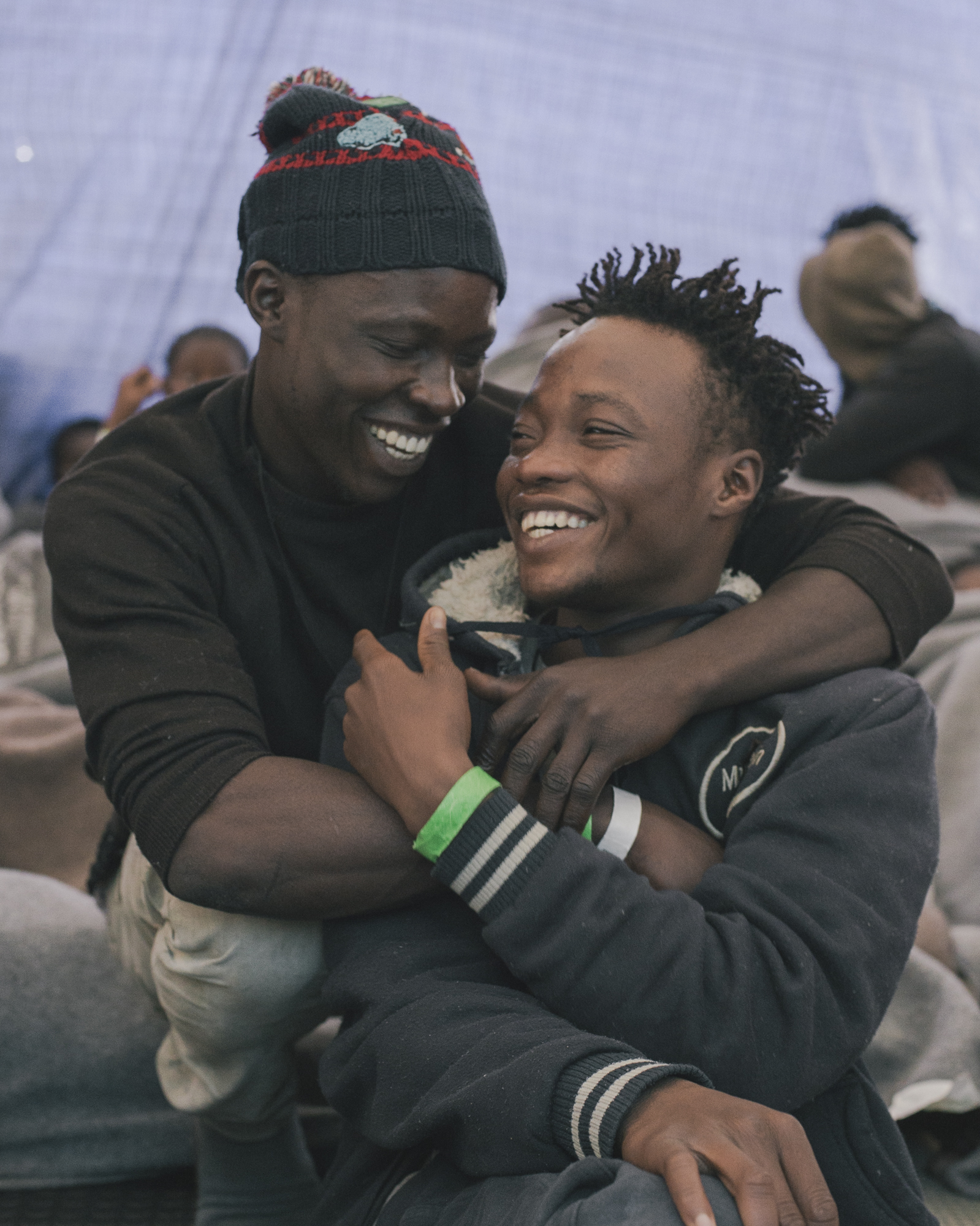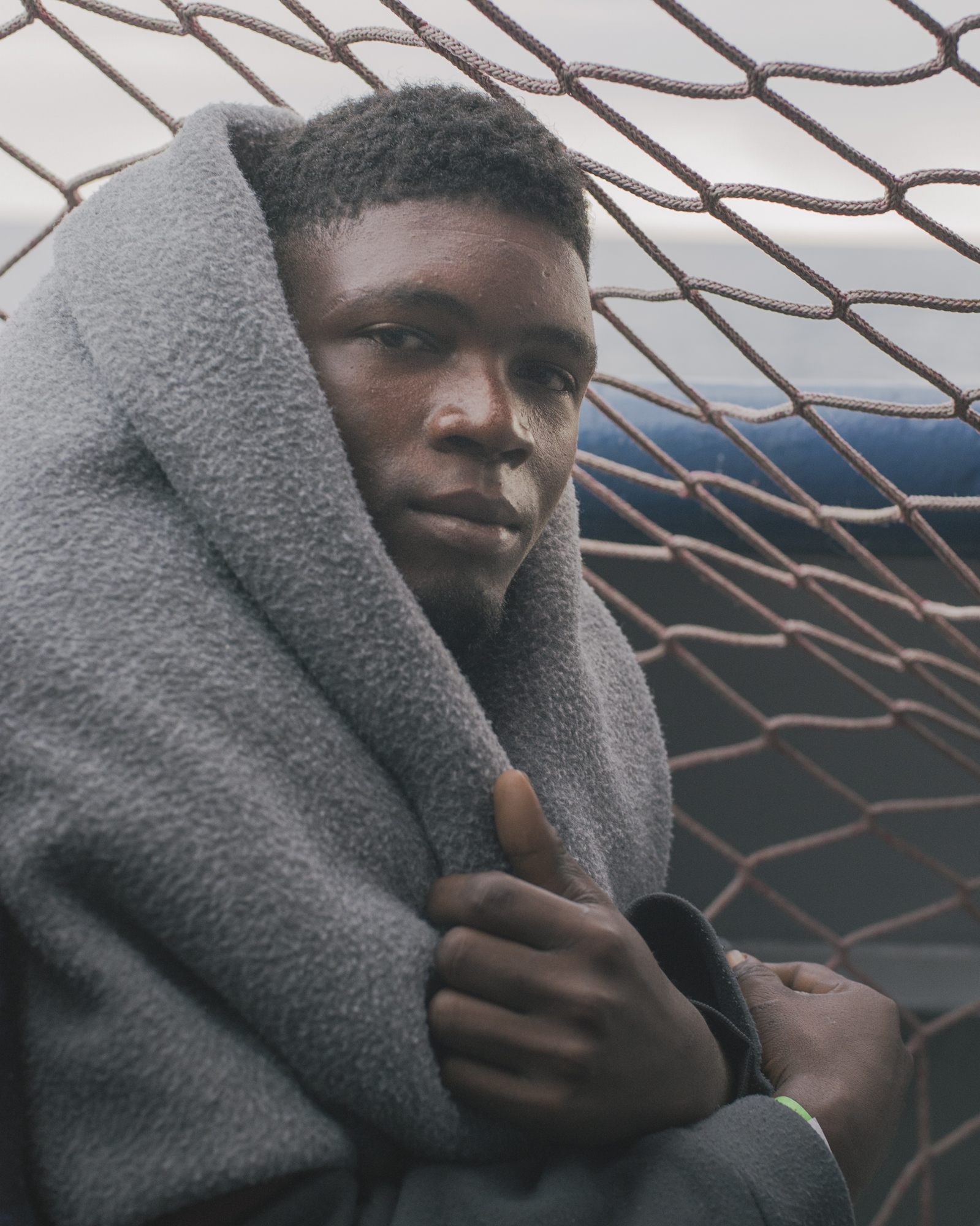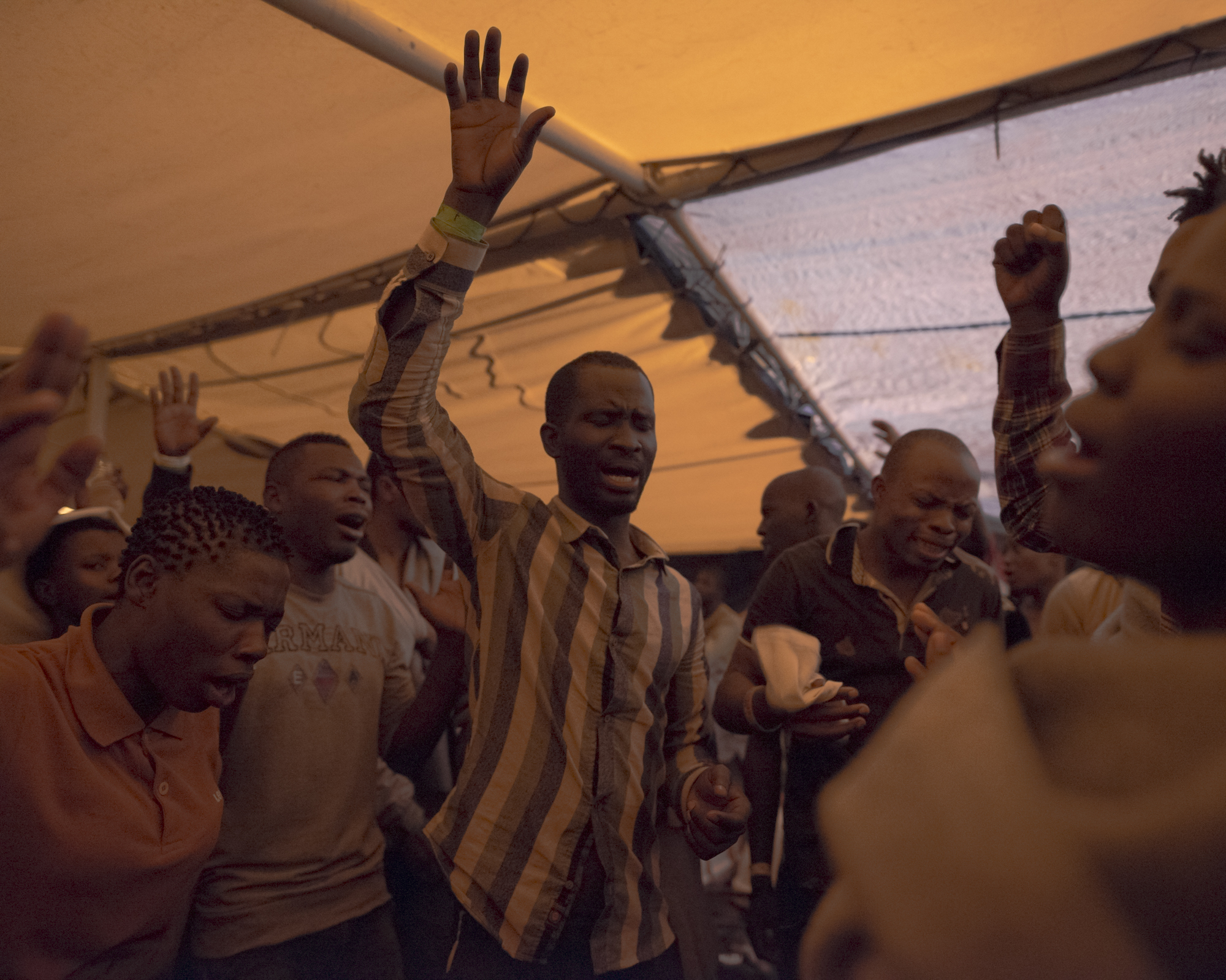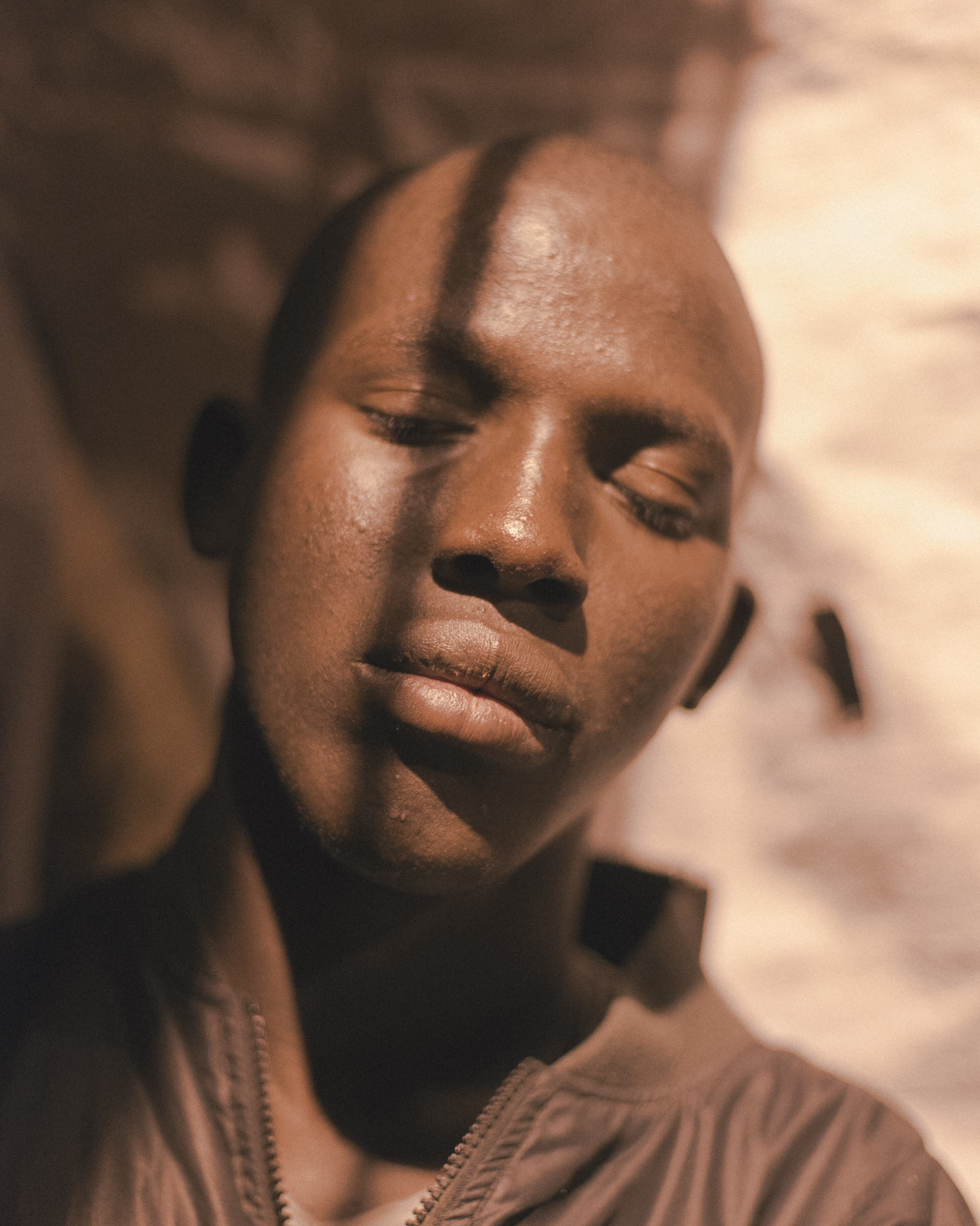This article first appeared in Good Trouble Issue 22. A couple of weeks ago, the civilian volunteer rescue boat, Sea-Watch 3, returned to the search-and-rescue zone off the coast of Libya. It had previously been detained unlawfully in Malta for almost four months, but has now resumed its mission of rescuing migrants at sea and documenting human rights violations in the Mediterranean. This interview and photographs were done earlier this year, before the boat was detained. While migrant arrivals have decreased in recent months, according to a report by the Italian Institute for International Political Studies, one in five people who attempting to flee across the central Mediterranean in September drowned — a figure that Sea-Watch attribute to the impediment of civilian rescue operations such as their own.
On one Sunday in June, more than 100 migrants were killed when a boat sunk in the waters off Tunisia, making it the deadliest migrant disaster in 2018. In the ongoing refugee crisis in the Mediterranean, human traffickers are increasingly using Tunisia as a launch pad for migrants headed to Europe, because of difficulties faced from armed groups in Libya. U.N. refugee agency UNHCR is now advocating for safe routes for refugees to travel “so that these unnecessary deaths don’t take place,” UNHCR spokesman William Spindler said in a briefing. “People should be able to find protection and travel in a legal, safe way.”
In the meantime, the situation in the Mediterranean remains dire, and more than 1,000 migrants died at sea just in the first half of 2018. One organisation taking matters into their own hands is Sea-Watch, a non-profit that conducts DIY search-and-rescue operations in the central Mediterranean. Formed at the end of 2014, Sea-Watch is a volunteer initiative of people who “could not stand on the sidelines witnessing people dying in the Mediterranean Sea any longer.”
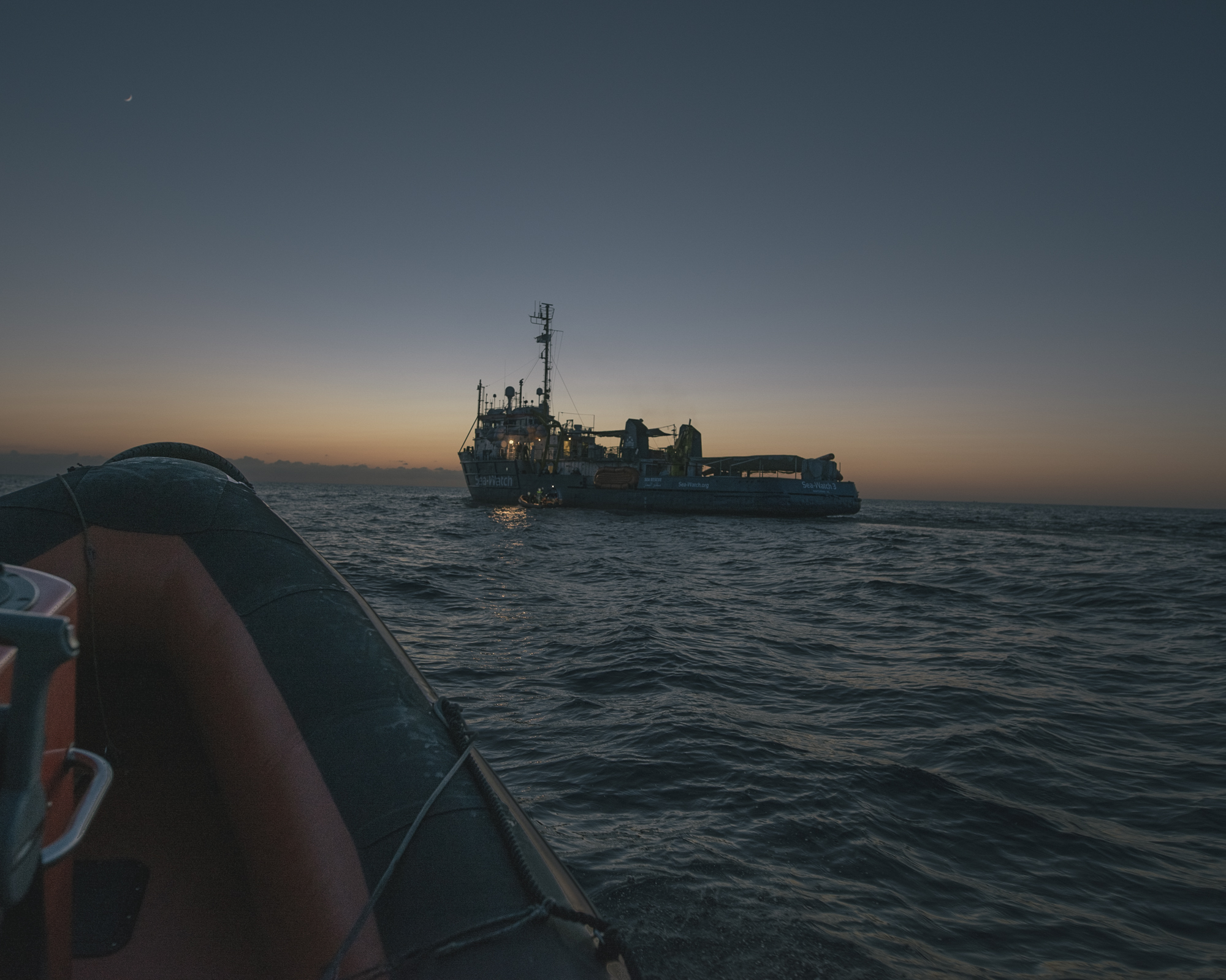
They are politically and religiously independent and funded only by donations. They say they are filling the gap of an institutional sea rescue plan with a clear mandate — in essence, saving lives and doing what the EU will not.
Sea-Watch say they have so far been involved in the rescue of more than 35,000 people. Earlier this year, photographer Roman Kutzowitz spent time on board the Sea-Watch 3, which patrols the Libyan 24-mile nautical zone. “The Mediterranean Sea is the world’s deadliest border,” says Kutzowitz, “but the faces of this ‘humanitarian intervention’ here are not aid workers or peacekeeping forces, just an IT-nerd from Cologne, Germany, fixing the wiring on board the Sea-Watch 3… or a lifeguard from the Basque Country tending to the torture-inflicted wounds of a rescued migrant.” We spoke to Sea-Watch’s communications officer Oliver Kulikowski to find out more.
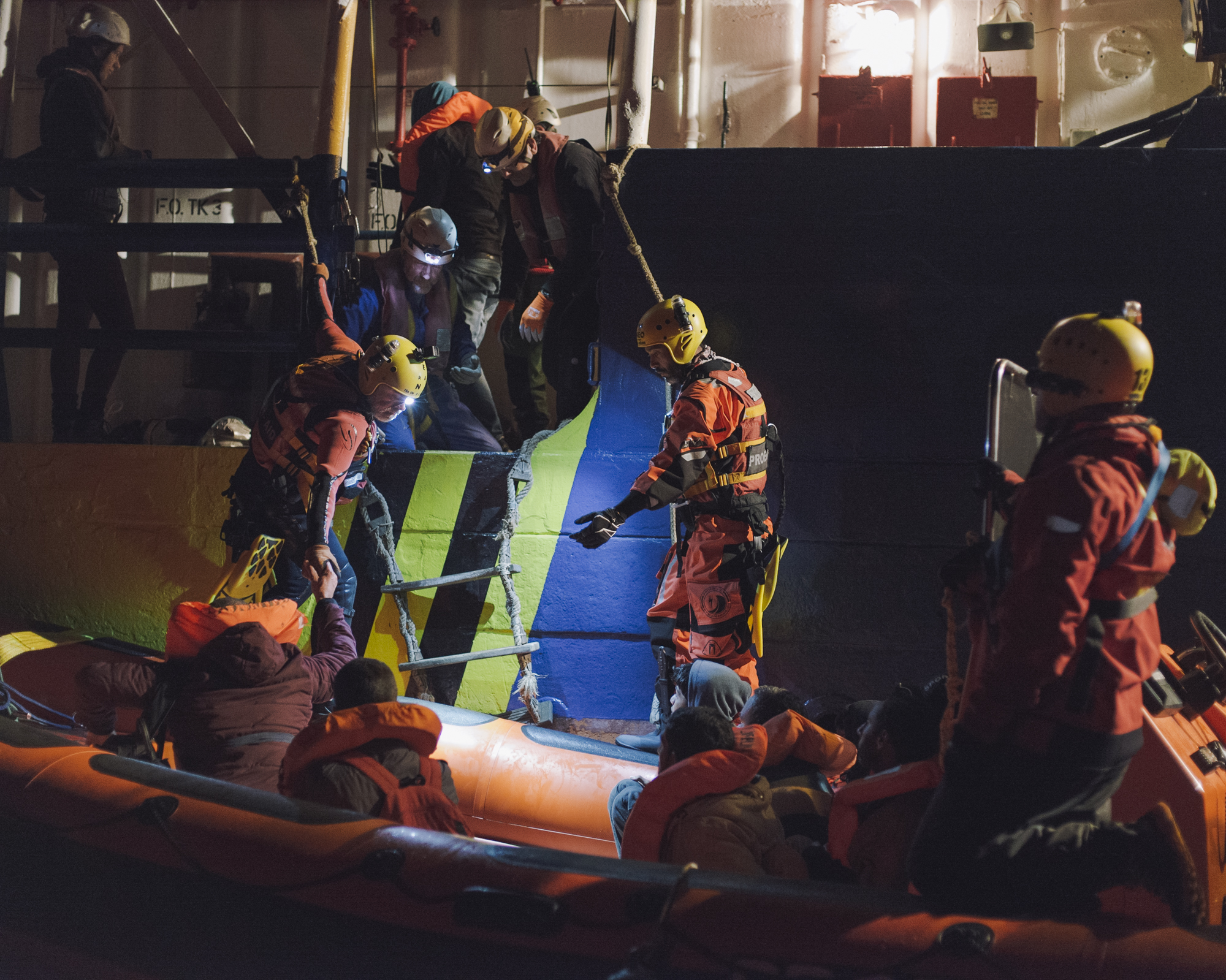
On just one day (Friday 13 April), Sea-Watch 3 rescued more than 300 people from boats in distress. In the time you have been involved in Sea-Watch, how has the situation changed?
The number of crossings over the central Mediterranean route has gone down, compared to the last year. At the same time, the mortality rate among those trying to leave Libya rose to a record high. We have experienced a change in the state of health of people on the boats recently, with significantly more being severely weak, malnourished and mistreated.
The situation in Libya is horrific – migrants are held captive in camps where they are exposed to systematic torture. In an internal diplomatic report, the German Foreign Office speaks of ‘concentration camp-like’ conditions. At the same time, the work of civil rescue organisations is impeded and criminalised, and the European Union is trying everything to prevent migrants from reaching Europe. The humanitarian crisis on the Mediterranean is far from being over, and no dirty deal with Libya or Turkey will hold back people trying to flee the living hell they are in.

What was the key moment that made you decide to quit what you were doing and commit to what you’re doing now?
I was working for a union before and was part of social movements for years, now I’m part of the Sea-Watch media team. I was following the beginning of Sea-Watch quite closely, and I was impressed by their spirit. I don’t think there was really a key moment for me, it felt more like a logical consequence to join. In times where a lot of people feel powerless and unable to change the terrible conditions surrounding us, there were some people that just started with nothing more than an old fishing cutter and a strong dedication to challenge Europe’s deadly border policy. Today, Sea-Watch is part of a civil fleet that is the most crucial factor in saving people from drowning in the Mediterranean.
Sea-Watch has so far been involved in the rescue of well over 35,000 people. Yet it’s an all-volunteer force filling a gap. What are the EU and nation states doing wrong in your view, and what should they be doing to help with this refugee crisis on its border?
We are confronted with a human rights crisis, not a refugee crisis. The European Union has to decide whether they want to fight migration by all means or respect human rights. You can’t have both. If you want to prevent human rights violations on migration routes, there’s only one answer: To provide safe and legal entryways, a safe passage.
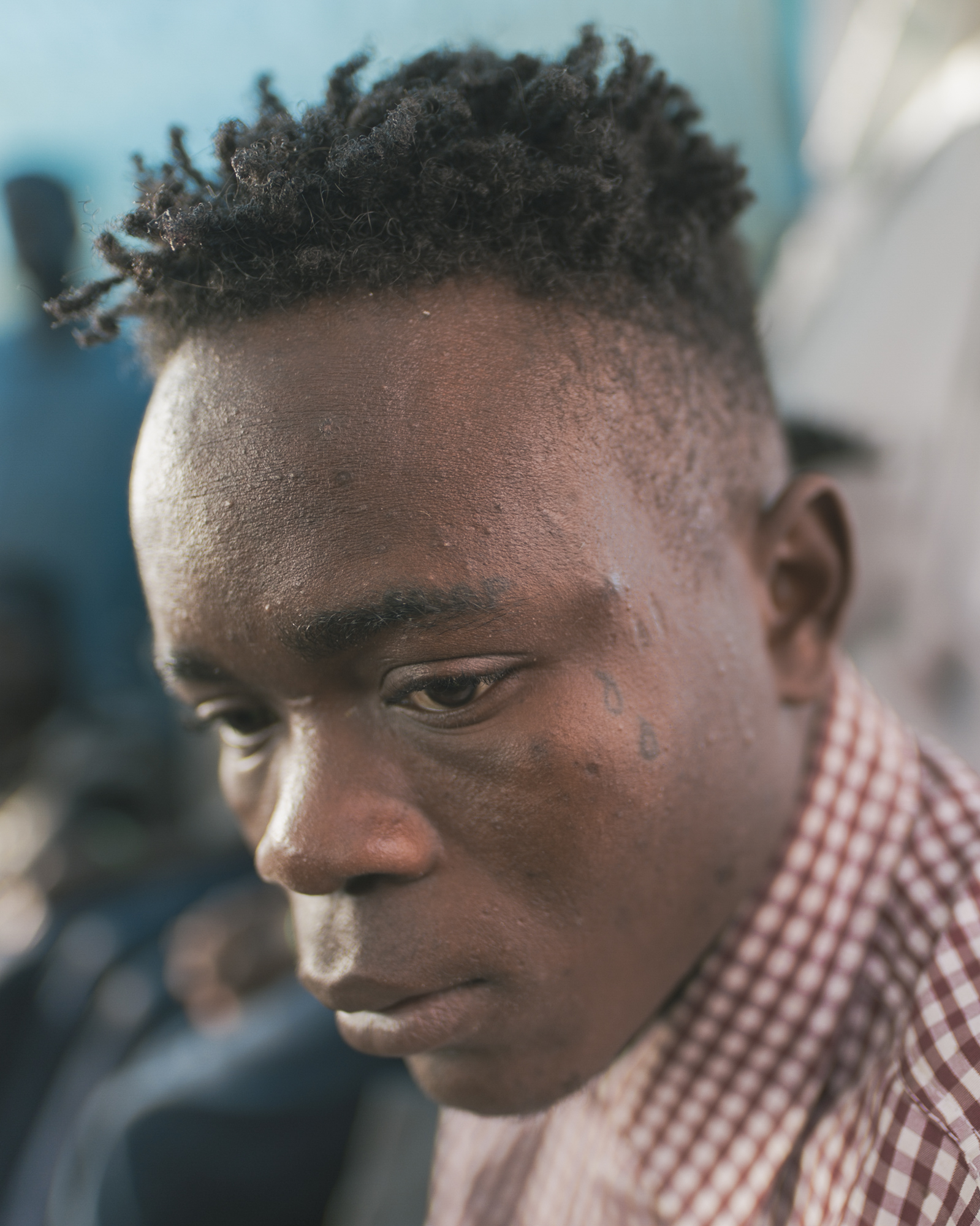
Why is Italy coordinating ‘pull-backs’ with the so-called ‘Libyan coast guard’, and why is that something you’re resisting? What can you update us about your ongoing legal proceedings?
First of all, returning people in flight to territorial waters is illegal according to the ‘non-refoulement’ principle enshrined in international law. Maritime law also tells us that the people must be taken to the nearest safe harbour, and Libya is not classified as safe by the EU.
These ‘pull-backs’ are one feature of a growing practice, which impinges on migrant rights while relying on techniques of avoidance of legal responsibility. At the moment, Sea-Watch is supporting 17 survivors of a fatal boat accident of 6 November 2017, who are taking legal action against the illegal pull-backs backed by the EU, and for the first time, addressing their case to the European Court of Human Rights.
To be fair, one has to admit Italy has pretty much been left alone by the European Union when it comes to migration. On the other hand, there are other options than coordinating pull-backs by the Libyan so-called ‘coast guards’ — attacking the Dublin Regulation for example, which gives western countries like Germany a very comfortable position, as migrants can only apply for asylum in the European country they enter first.
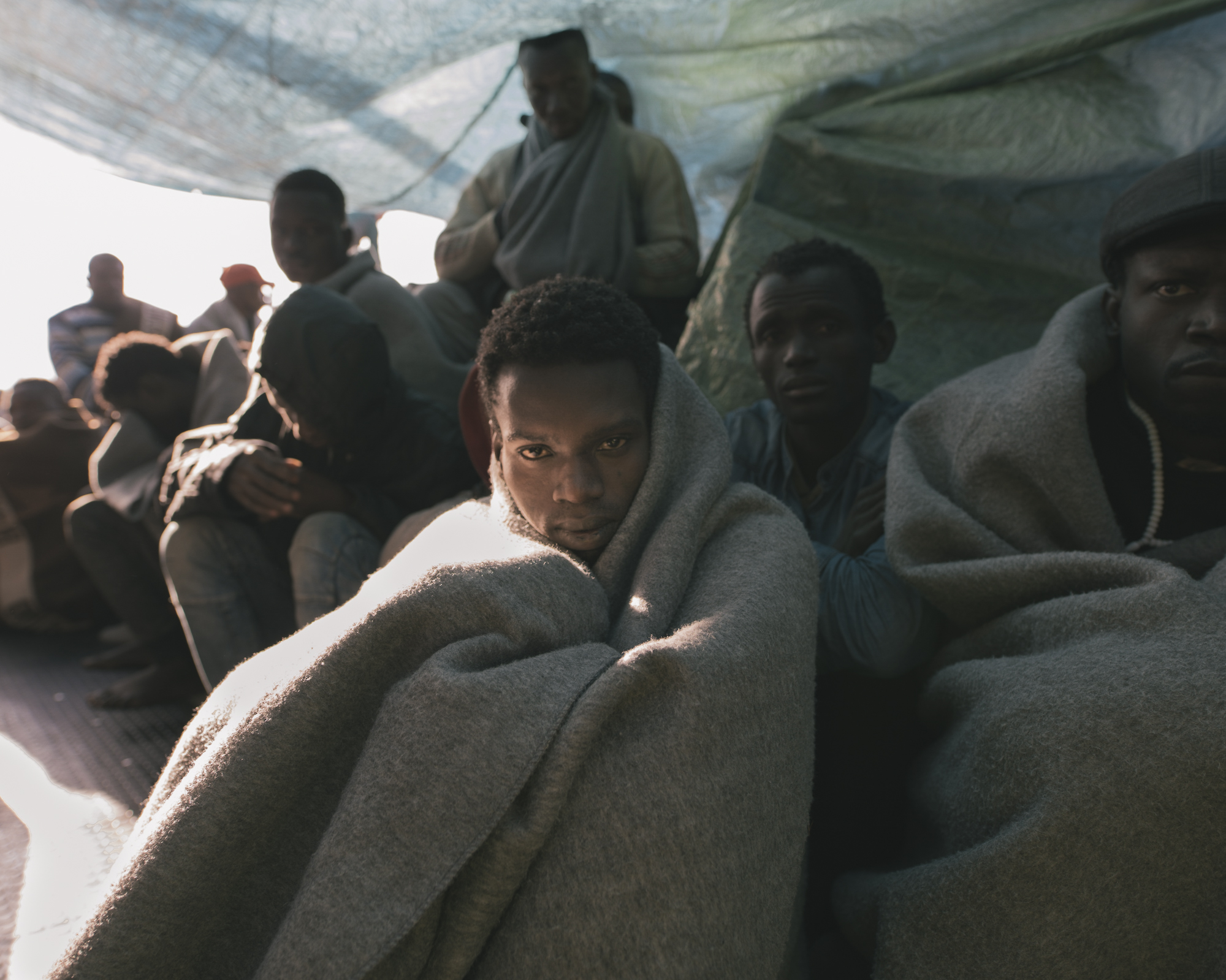
We’ve heard about the far-right groups that have boats and are trying to impede rescue missions. How much of a threat do they pose in reality, and is that increasing or decreasing? What direct encounters have you had with these groups, and what was the outcome?
There was a ship of Generation Identity on the Mediterranean in 2017. But, after embarrassing themselves enough, they were gone again after a while. Some of their Sri Lankan crew jumped ship when it docked in Cyprus, and several reportedly asked for asylum. The far-right group was advised not to anchor in Greece or Sicily for fear of protests, and their vessel was prevented by Tunisian fishermen from putting into the port of Zarzis for supplies. We were lucky they didn’t actually get involved in a rescue, since these operations are complicated and dangerous. The danger of them messing up and eventually killing people was quite high.
What is the best way for people to support your mission, should they wish to?
There are a lot of ways to support us. You can spread the word about our missions and speak up against the inhumane migration policies of the European Union. And, since we are a volunteer organisation not affiliated with any political party or religious organisation, any donation helps us a lot.
